-
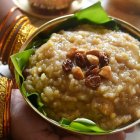 Want to Pamper Your Taste-Buds this Pongal? Here are Mouth-Watering Pongal Recipes You can't Miss in 2019
Want to Pamper Your Taste-Buds this Pongal? Here are Mouth-Watering Pongal Recipes You can't Miss in 2019
-
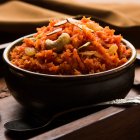 भारतीयों का मिठाई के लिए एक विशेष झुकाव है: 10 सबसे स्वादिष्ट भारतीय मिठाइयाँ विकल्प जिन्हे देख कर आपके मुंह में पानी आ जायेगा (2019)
भारतीयों का मिठाई के लिए एक विशेष झुकाव है: 10 सबसे स्वादिष्ट भारतीय मिठाइयाँ विकल्प जिन्हे देख कर आपके मुंह में पानी आ जायेगा (2019)
-
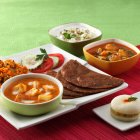 Fasting Does Not Mean Starving! Keep Your Energy Up with These 9 Delicious Navratri Recipes & Fasting Tips for Navratri (2019)
Fasting Does Not Mean Starving! Keep Your Energy Up with These 9 Delicious Navratri Recipes & Fasting Tips for Navratri (2019)
Want to Try Some Easy and Healthy Recipes for Navratri Fast this Time?
Navratri is an auspicious time for all Hindus in India. It is a festival that is celebrated throughout the country and also by Indians abroad. Observing fast for 9 days is an important element of the festival. Are you observing Navratri fast for the first time and don’t know what to cook? Are you short of time to prepare elaborate dishes during the fast? Are you looking for some recipes that are different from the ones that you usually prepare for Navratri fast? If your answer to anyone of these questions is a ‘yes’, then we suggest you read along. We have some solutions for you!
What is The Navratri Festival?
Before we jump to the recipes, it's important that we understand what the whole deal is. The term Navratri literally means, nine nights; thus, righteously describing the nine days of fast! Navratri is celebrated in honor of Goddess Durga and her victory over the demon, Mahishasura. Over the nine days of the festival Goddess Durga is worshipped in her nine different forms or avatars. Devotees indulge in holy rituals and poojas, during the day and participate in dance and music in the night. The festival symbolically signifies the value and importance of good deeds and values over evil.
Significance of Fasting During Navratri
Ideally, devotees fast during Navratri to please the Goddess Durga or Durga Maa, as affectionately known. They consider this as an auspicious occasion to embrace the blessings from the Goddess. However, there are other reasons too, why observing fast during this time is considered good.
Typically, the festival days of Navratri falls on the season subjected to environmental changes. You are more prone to illnesses during this season. Hence, abstaining from eating certain food items and sticking to only specific ones, basically gives the gut a break. This is a way to detox and cleanse the body. Moreover, it is believed to relieve the mind of stress and tension too. Fasting or abstinence from food is said to reaffirm the notion of belittling materialism and embracing spirituality.
Permissible Ingredients for Navratri Recipes
People observe fast during Navratri with great faith and commitment. It is seen that families have their indigenous way of fasting, which may vary slightly from one to another. Having said that, it is important to know that there are certain mandatory rules that have to be adhered while observing the Navratri fast. This ideally refers to the ingredients being used in the recipes prepared during the fast. We have compiled a list of the ingredients that can and cannot be used in any of the Navratri recipes for 9 days fast.
Flours and Grains
Scientifically speaking, certain grains and flours like rice and wheat take up more time for digestion and are heavy on the stomach. On the other hand, grains and flour like buckwheat (kuttu) and water chestnut (singhada) are very light on the gut. Especially when the body is low in immunity and prone to illnesses, it is prudent to stick to the lighter versions of food.
- Rice flour, whole wheat flour, all-purpose flour, corn flour, chickpea flour and semolina.
- Sabudana (tapioca pearls), water chestnut flour(singhada), buckwheat flour(kuttu), amaranth(rajgira) and samak rice (barnyard millet).
Flours and grains to be avoided:
Flours and grains allowed in Navratri recipes:
Vegetables
Non-vegetarian products are totally given up during this time. As a result, people resort to different variants of vegetables in the recipes. However, there are certain restrictions on the usage of vegetables too. As per Ayurveda, vegetables that are tamasic are those that increases heat in the body, and hence are not good. Onions, garlic, shallots, mushrooms, eggplants and bhindi fall under this category. Sattvic vegetables are said to give energy to the body and keeps one hydrated. These vegetables should be consumed during the Navratri fast.
- Onions, garlic, shallots, mushrooms, eggplants and bhindi
- potato, sweet potato, tomato, pumpkin, bottle gourd, raw banana, raw papaya, ginger, cucumber, yam and lemons.
Vegetables to be avoided:
Vegetables allowed in Navratri recipes:
Spices and Herbs
Spices in general are said to increase the heat in the body. As a result, most of the usual spices used in Indian cooking like turmeric, mustard seeds and such are avoided for Navratri recipes. Also, regular table salt is not used for the cooking. Instead, rock salt or sendha namak is used. This is because rock salt is considered to be purer and more unprocessed, compared to table salt. Apart from the allowed spices, some people may also use fresh coriander leaves, red chilli powder, dry mango powder (amchur) and chaat masala.
- Asafetida (hing), turmeric, mustard seeds, fenugreek seeds, garam masala, coriander powder
- Cumin, green cardamom, cloves, cinnamon, ajwain, black pepper, tamarind, nutmeg, kokum and dry pomegranate seeds.
Spices to be avoided:
Spices allowed in Navratri recipes:
Fruits
There are no restrictions on fruits during the Navratri fast. You can consume any kind and any quantity of fruits during this time. In fact, it is the best time to enjoy seasonal fruits like mangoes, watermelons and apples. You can eat them fresh and whole or can have them juiced. Alternatively, you can also make a fruit chaat or simply have them with some yogurt.
Milk Products
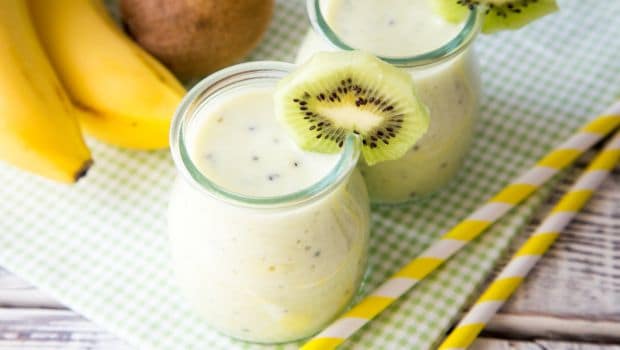
All dairy products made out of milk is permissible to be included in Navratri recipes. You can get a good dose of protein from these products. All milk alternatives like soy milk, coconut milk, cashew and almond milk are also allowed in recipes. You can opt to include paneer, cheese, buttermilk, yogurt or curd in your daily Navratri fasting diet.
9 Quick and Healthy Recipes for Navratri
Finally, it goes without saying that devotees have to steer-clear of egg, non-vegetarian food and alcohol during this festive season. These ingredients do not align with the fasting rituals and needs to be totally avoided at any cost.
Now that we are clear about the ingredients to use for cooking our Navratri special dishes, lets get ahead with the recipes.
You will see that we have compiled a list of quick and healthy recipes to try out. These recipes are:
- Easy and can even be prepared by beginners at cooking.
- Take very less time in prepping and cooking
- Use healthier versions of the ingredients and hence, are very nutritious
- Different from the traditional dishes cooked for Navratri
- Involve no complicated steps in the cooking process.
Banana Walnut Lassi
Let’s start off with the easiest recipe that involves no cooking at all! This lassi is great to have in the morning to start off a Navratri day. This drink is loaded with nutrients and fiber and is very light on the digestive system; but keeps you full for sure!
- 2 ripe bananas
- 1 cup yoghurt/ curd
- 4 walnuts
- 2 tbsp honey
- Ice (optional)
Ingredients:
- Add all the ingredients (except ice) into a blender.
- Blend until smooth.
- Add ice if needed.
- Serve with chopped pieces of walnut and banana.
Instructions:
Paneer and Badam Milk Energy Drink
This paneer and badam milk are assured to give all the energy boost for the whole day while observing Navratri fast. This drink can be had as a midday snack or a meal in its whole, as it keeps you feeling full for a long time.
- ½ cup grated paneer (cottage cheese)
- ½ cup badam (almond)
- 4 cup milk
- ½ tsp cardamom powder
- ½ cup sugar
- Few strands of saffron
- 12 almonds soaked, peeled and chopped (for garnishing)
Ingredients:
- Make a paste out of the almonds by adding a little water. Keep this aside.
- Now, boil the milk and add grated paneer to it.
- Cook on medium heat till the mixture thickens.
- To this, add the almond paste, sugar, cardamom powder and saffron.
- Add the almonds for garnishing. Mix well and serve cool.
Instructions:
Pink Barfi - Navratri Special
This is an easy to make sweet that is rich in proteins and hence, is ideal for a Navratri fasting day! It is made from Khoya/Mawa which is a dairy product made from milk. Khoya is basically milk solid, left after evaporation of the water content from milk.
- 500 gm khoya
- 100 gm coconut powder (desiccated)
- ½ cup sugar (powdered)
- ½ tsp red food color
Ingredients:
- Heat the khoya in a pan and stir continuously till you get a smooth dough.
- Keep aside to cool. To this add the sugar, coconut powder and food color.
- Mix well. Set in a tray and cut into diamond shaped pieces.
Instructions:
Sabudana Ladoo Recipe
Sabudana (tapioca pearls) are popularly used in recipes for Navratri fast. Here is a sweet ladoo from Sabudana.
- 1 cup Sabudana
- ¾ cup desiccated coconut
- ½ cup powdered sugar
- 6 tbsp ghee
- 9 cashews(chopped)
- ½ tsp cardamom powder
- ¼ tsp nutmeg powder
Ingredients:
- Dry Roast the Sabudana in a pan till the pearls turn crunchy and light brown.
- Cool and grind into a fine powder.
- Now, lightly roast the coconut powder and add the Sabudana powder to it.
- Add sugar and mix well and keep aside.
- To this mixture, add cashews fried in ghee.
- Add cardamom and nutmeg powder. Combine well and shape into ladoos.
Instructions:
Samak Rice Dosa
Samak or farli dosa is rich in nutrients but low in calories. It is very easy to prepare and great to have on a Navratri day.
- 1 cup Samak rice (barnyard millet)
- ½ cup Sabudana
- ½ cup thick curd
- Rock salt (as per taste)
- Oil
Ingredients:
- Clean the Samak rice and Sabudana and soak in water for 4 hours.
- Then, Blend to a smooth consistency by adding curd.
- Add rock salt to this batter and start making dosas right away!
Instructions:
Navratri Tomato Soup
If you are also watching the calories in your diet while fasting for Navratri, then try this low fat Navratri recipe. Makhana (lotus seeds) added in the recipe gives a thick consistency to the soup
- 3 ripe tomatoes
- 1 carrot (optional)
- 1 cup roasted makhanas
- 1 tsp sugar (optional)
- Rock salt and pepper to taste..
Ingredients:
- Cook the tomatoes in the pressure cooker. Grind well.
- Now, coarse grind the makhanas and mix water to make a paste.
- Combine both the pastes and cook on medium heat.
- Add salt, sugar and pepper as per taste.
- Serve hot.
Instructions:
Navaratri Special Cheela
Cheelas are thicker versions of dosas. This potato- Sabudana cheela is perfect as a meal on a Navratri fasting day.
- 4 medium potatoes (grated)
- Rock salt (as required)
- ½ tsp Black pepper
- 2 green chilies
- 3 tbsp Sabudana powder
- Water (as needed)
Ingredients:
- Combine all the ingredients.
- Add water as required to bind well.
- Heat a griddle and pour the batter onto it.
- Flatten it and cook well on both the sides.
- Add ghee to this cheela as needed.
Instructions:
Kala Chana Sundal Recipe
This south Indian Navratri recipe is both a snack as well as a whole meal in itself. Help yourself to this tasty dish and feel guilt free while fasting for Navratri. It is that healthy and nutritious!
- ½ cup black chickpeas (kala Chana)
- 2 cups water For seasoning:
- 1 tbsp ghee/ coconut oil
- ¾ tsp urad dal
- 1 green chilli
- 1 dry red chilli
- 2 tbsp fresh coconut (grated)
- 10 curry leaves
- Few drops of lemon juice (optional)
- Rock salt (as required)
Ingredients:
- Soak the kala Chana overnight.
- Add the Chana, rock salt and water to the pressure cooker and cook till done.
- Drain the kala Chana and keep aside.
- Season all the ingredients (mentioned above) in ghee and add to the cooked kala Chana.
Instructions:
Easy Cake from Kuttu and Singada Flour
This is a fast (vrat) friendly cake made from Kuttu and singada flour instead of regular flour. It is easy to make and healthy too.
- 1 cup Kuttu flour
- ½ cup singada flour
- ¼ tsp cardamom powder
- Baking powder 1 tsp
- Baking soda ¼ tsp
- 1 banana
- 1 cup jaggery powder
- 1 cup vegetable oil
- 4-5 tsp curd
- 100 ml milk
- Vanilla essence (optional)
- Dry fruits (as required)
Dry ingredients:
Other ingredients:
- Sieve all the dry ingredients and mix well.
- Grind banana, curd, jaggery powder and oil into a smooth paste.
- Blend this with the dry ingredients in batches.
- Add dry fruits and vanilla essence.
- Bake in microwave for 5-7 mins.
Instructions:
-
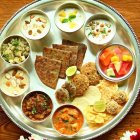 क्या आप नवरात्रि के लिए उपवास कर रहे हैं? यहां आपके लिए 9 नवरात्रि व्यंजन बनाने की विधि है जो आपके लिए शुद्ध, स्वादिष्ट और स्वस्थ की गारंटी है (2020)
क्या आप नवरात्रि के लिए उपवास कर रहे हैं? यहां आपके लिए 9 नवरात्रि व्यंजन बनाने की विधि है जो आपके लिए शुद्ध, स्वादिष्ट और स्वस्थ की गारंटी है (2020)
-
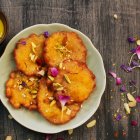 This Festive Season Try Your Hand at Homemade Sweets! Here are Hand Picked Indian Sweet Recipes for Celebrations in 2019
This Festive Season Try Your Hand at Homemade Sweets! Here are Hand Picked Indian Sweet Recipes for Celebrations in 2019
-
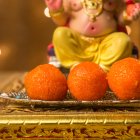 7 Simple and Easy Prasad Recipes That Anyone Can Make. Give New Meaning to Your Devotion Through Prasad Made with Love (2020)
7 Simple and Easy Prasad Recipes That Anyone Can Make. Give New Meaning to Your Devotion Through Prasad Made with Love (2020)
-
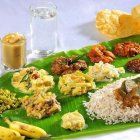 ओणम साध्य तैयार करना उतना मुश्किल नहीं जितना दिखता है। 10 व्यंजन भी एक अद्भुत साध्य बना सकते हैं और हमारा पास आपके लिए कुछ सरल रेसिपी हैं जिसे खाकर लोग उँगलियाँ चाटते रह जायेंगे (2020)
ओणम साध्य तैयार करना उतना मुश्किल नहीं जितना दिखता है। 10 व्यंजन भी एक अद्भुत साध्य बना सकते हैं और हमारा पास आपके लिए कुछ सरल रेसिपी हैं जिसे खाकर लोग उँगलियाँ चाटते रह जायेंगे (2020)
-
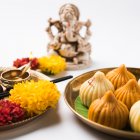 Looking for Delicious Ways to Celebrate Ganesh Chaturthi? Treat Your Family to 10 Yummy Ganesh Chaturthi Recipes (2019)
Looking for Delicious Ways to Celebrate Ganesh Chaturthi? Treat Your Family to 10 Yummy Ganesh Chaturthi Recipes (2019)
Treat Yourself to these Super-Easy Navratri Fast Recipes in 2019
Navratri fasting is a common practice in many parts of India. Whilst having spiritual benefits, it has some scientific and biological benefits too. So, if you are also planning to fast this year, don't forget to try these delicious recipes at home.

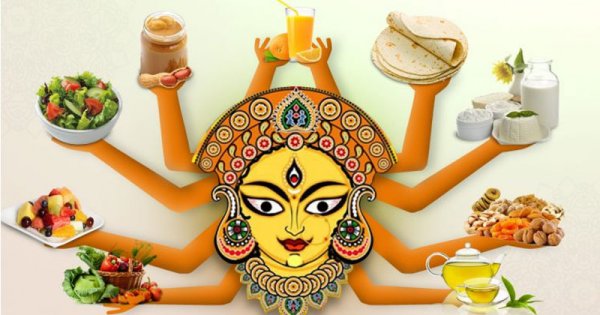
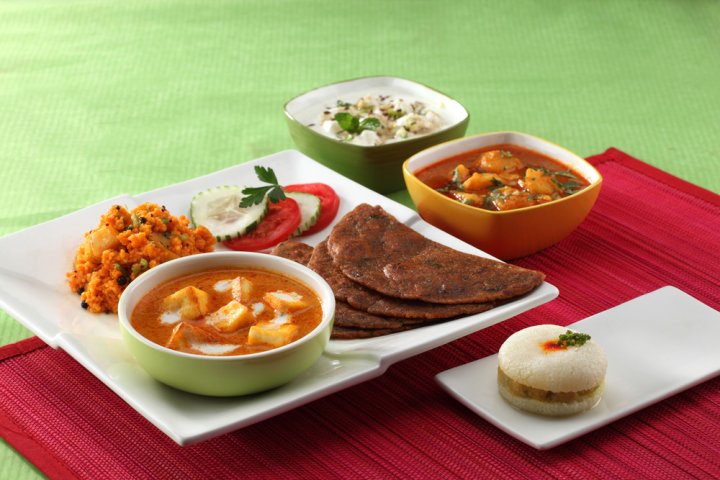
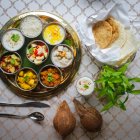
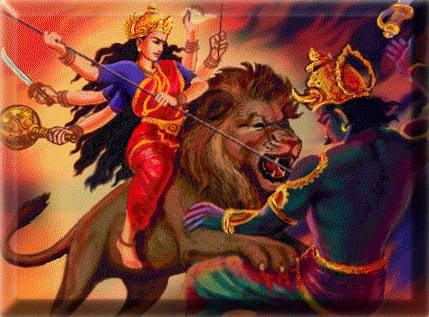
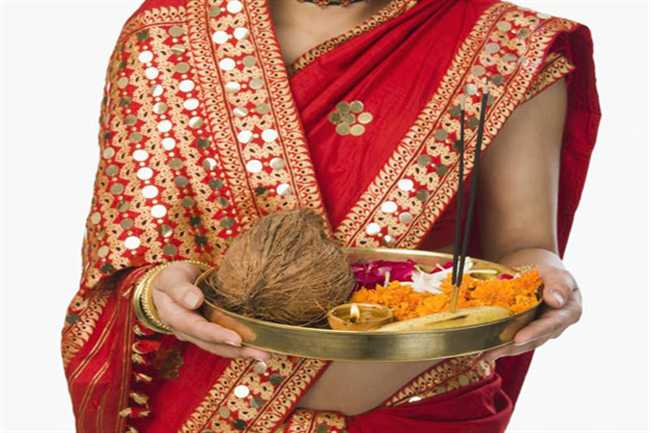
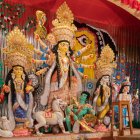
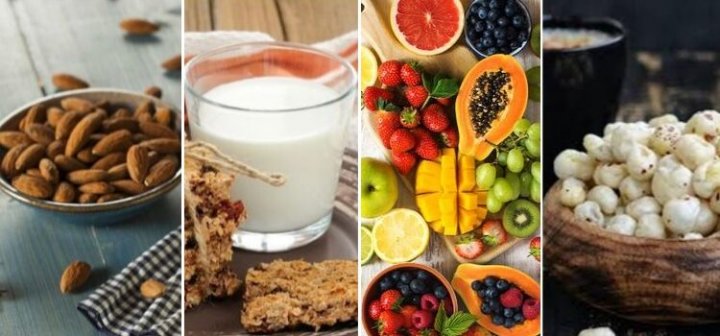
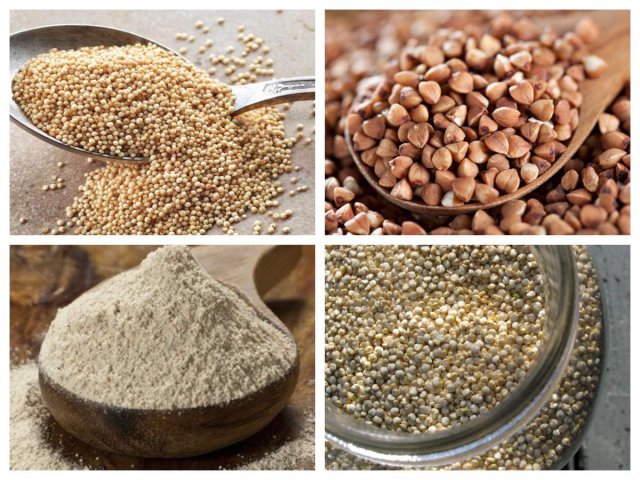
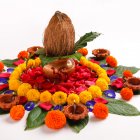
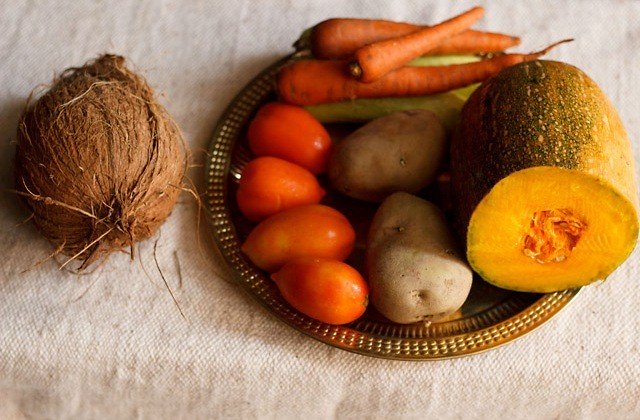
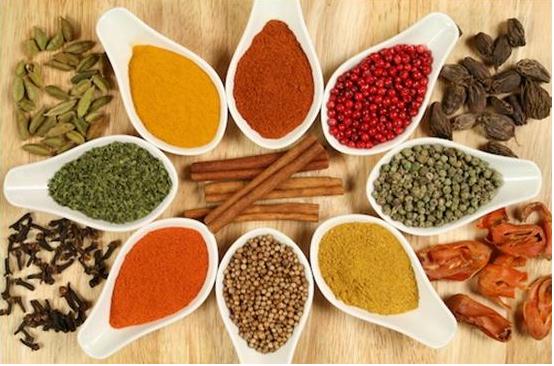

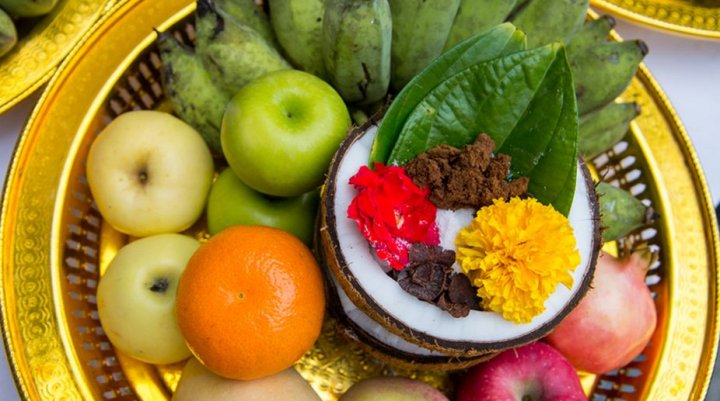
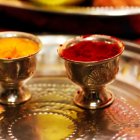
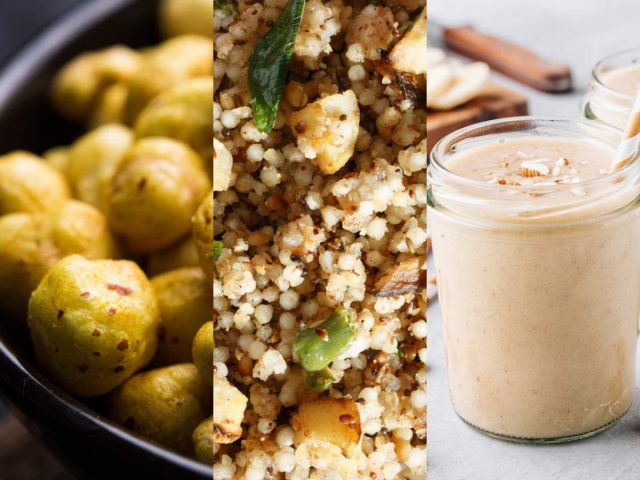
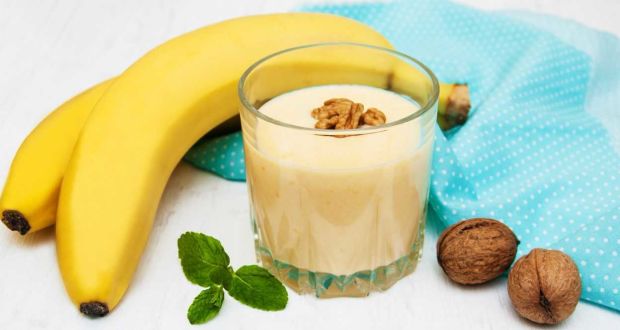
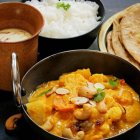
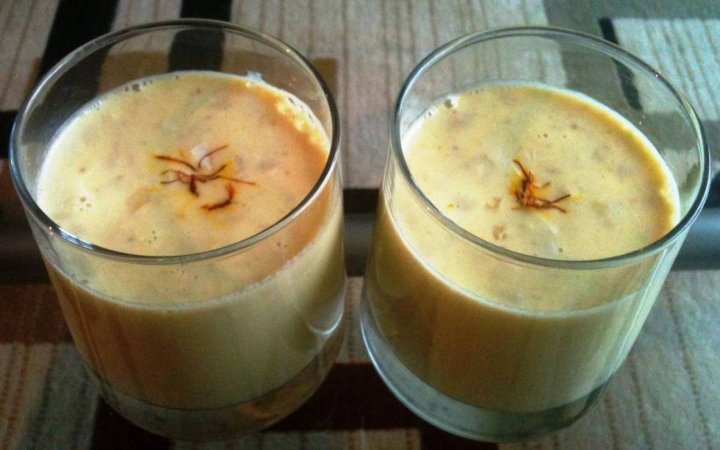
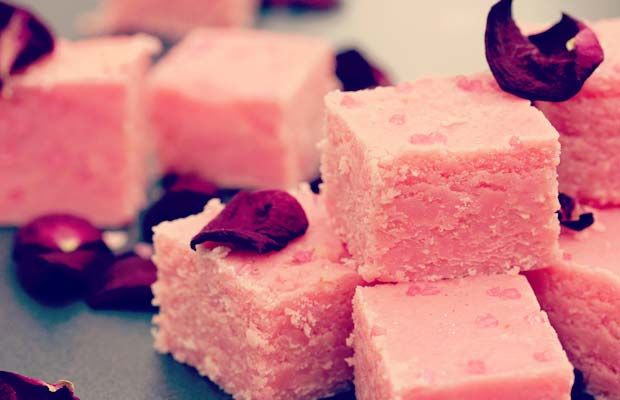
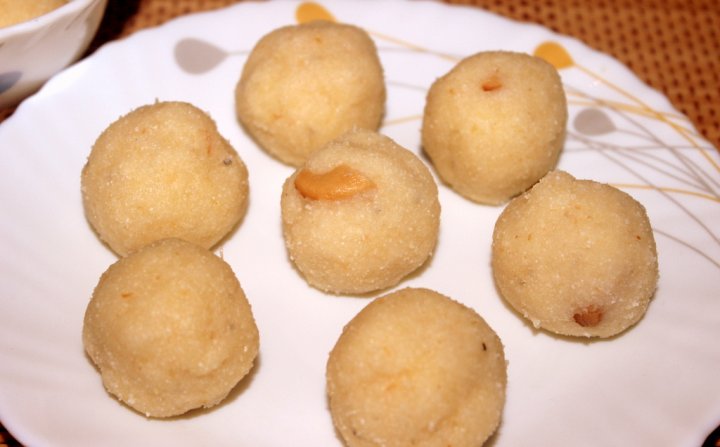
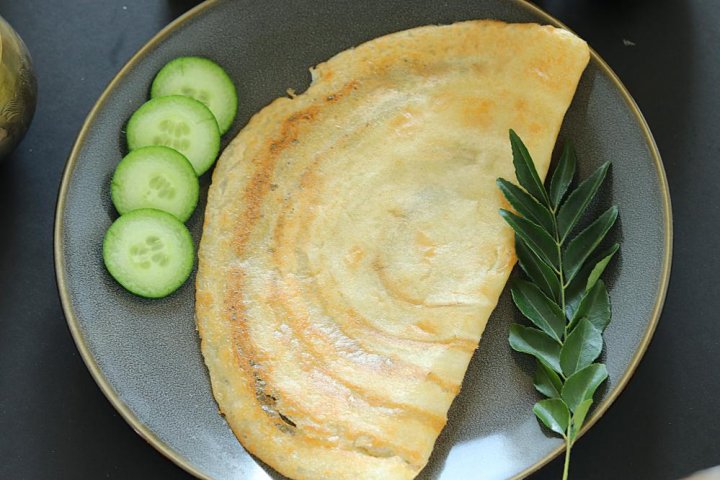
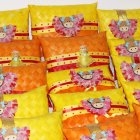
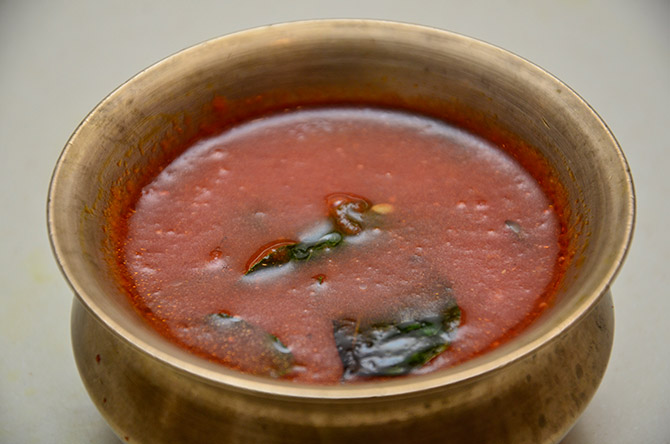

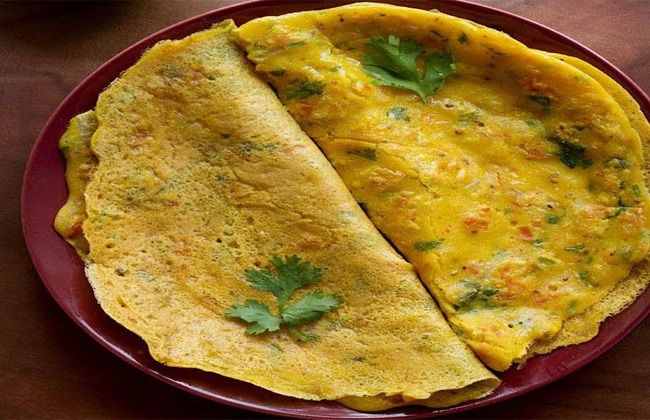
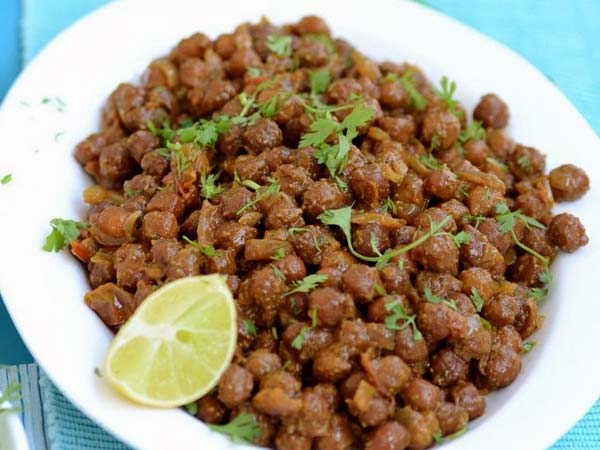
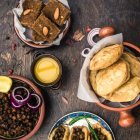
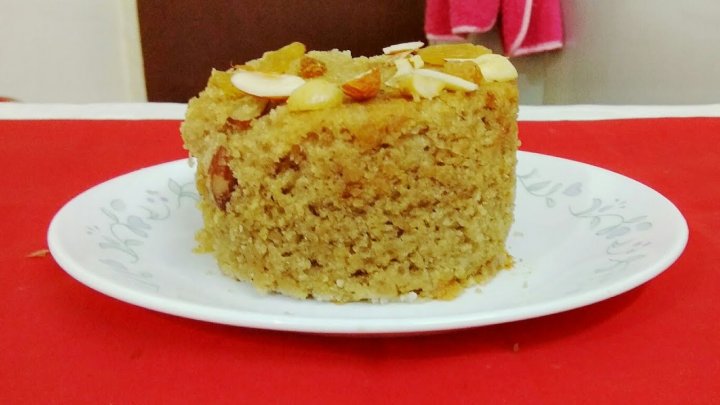
 Highlight the Best Facets of Your Incomparable Beauty: Discover the Best Face Highlighter Currently Available in India and Everything You Need to Know About Using Face Highlighters for Maximum Effect (2023)
Highlight the Best Facets of Your Incomparable Beauty: Discover the Best Face Highlighter Currently Available in India and Everything You Need to Know About Using Face Highlighters for Maximum Effect (2023)
 Forget the Blemishes and Get that Picture Perfect Flawless Radiance on Your Face: Check out the Best Foundations for Oily Skin Currently Available in India and Everything You Need to Know About Makeup Foundations (2023)
Forget the Blemishes and Get that Picture Perfect Flawless Radiance on Your Face: Check out the Best Foundations for Oily Skin Currently Available in India and Everything You Need to Know About Makeup Foundations (2023)
 Make Your Presence Felt Wherever You Go: Discover the Best Perfumes Under 2000 for Both Men and Women to Announce Your Arrival and Make Any Occasion Memorable (2023)
Make Your Presence Felt Wherever You Go: Discover the Best Perfumes Under 2000 for Both Men and Women to Announce Your Arrival and Make Any Occasion Memorable (2023)
 Protect Your Oily Skin from the Harmful Rays of the Sun: Discover the Best Gel Based Sunscreens for Oily Skin and Everything You Need to Know Before Buying One (2023)
Protect Your Oily Skin from the Harmful Rays of the Sun: Discover the Best Gel Based Sunscreens for Oily Skin and Everything You Need to Know Before Buying One (2023)
 Minor Blemishes and Wrinkles Affecting Your Confidence? Check out the Best BB Creams to Conceal Your Worries and Nourish Your Skin to Restore the Healthy, Radiant and Glowing Complexion Back Again (2023)
Minor Blemishes and Wrinkles Affecting Your Confidence? Check out the Best BB Creams to Conceal Your Worries and Nourish Your Skin to Restore the Healthy, Radiant and Glowing Complexion Back Again (2023)
